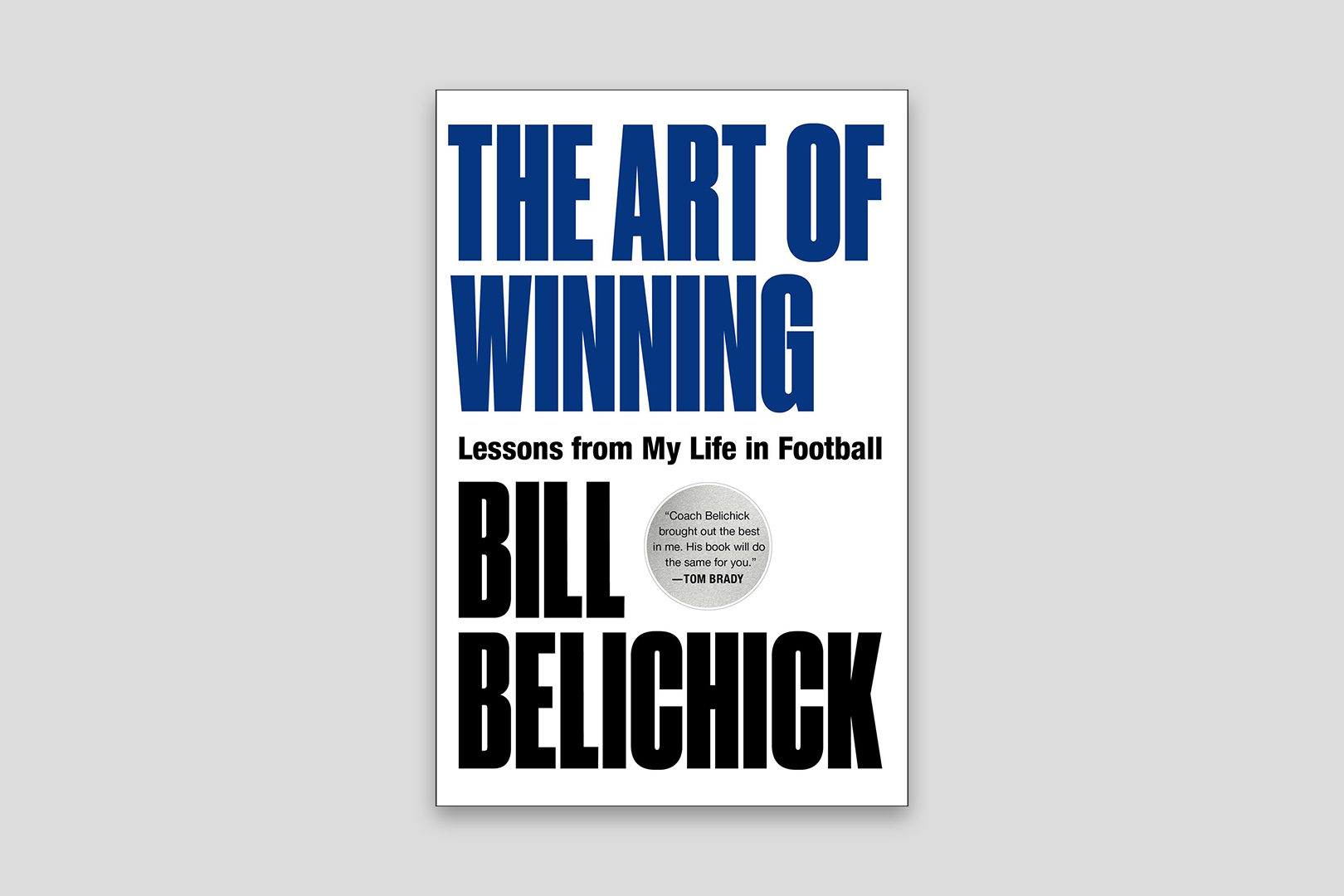When I heard eight-time Super Bowl champion Bill Belichick was writing a book, I was excited. I’d read Bill Walsh’s famous “football bible” Finding the Winning Edge, and Belichick’s book felt like a potential spiritual successor. The Art of Winning is more of a memoir and not a spiritual successor diving super deep into the intricacies of building a winning organization—but it’s a very accessible book.
The Art of Winning: Lessons from My Life in Football is, of course, written from the perspective of someone who lives and breathes football and has been a coach for five decades. Yet Belichick’s book delivers life lessons applicable for just about everyone.
It’s written in an old-school type of voice. While taking a different overall approach in terms of not diving extremely deep into X’s and O’s like Finding the Winning Edge, Belichick delivers a similar writing style—unsurprisingly using efficient language. Mentions of modern-day tools like AI aside, The Art of Winning just as easily could have been written 100 years ago with its quick-hitting sentences. (No one should be shocked Belichick didn’t use flowery language.)
The book’s 15 chapters hit on things like Preparation, Mistakes, Confidence—and, obviously, Doing Your Job. One of the memorable gems from Belichick is that practice doesn’t make perfect; no one is perfect. Practice makes confidence.
Belichick throws a lot of praise throughout the book, probably for his longtime quarterback Tom Brady most frequently. (Or perhaps for his father, Steve Belichick, who coached at North Carolina and Navy, wrote Football Scouting Methods, and was known as a master of scouting opponents.)
One story we’ve never heard before is that after Drew Bledsoe’s injury in September 2001 (ultimately a 10-3 loss to the Jets where Brady threw 38 passes), Brady told a colleague within the organization that “we would’ve won by 40 points” if he started (and therefore would’ve gotten the practice reps). Belichick heard about it and loved the confidence—in part because Brady didn’t say I would’ve thrown four touchdowns but that he said we would’ve won by 40. It wasn’t about arrogance; it was about confidence he would do his job thanks to his preparation. The next week, with Brady starting, the Patriots won their game, 44-13.
There are lessons about making the most of your circumstances, treating every day the same instead of treating “big days” (like big games) any differently, and moving forward (and “On to Cincinnati…”).
If you’re looking for specific insight onto controversies like Malcolm Butler’s Super Bowl LII benching or Tom Brady leaving New England (it was mentioned in passing that they basically couldn’t afford him), you won’t find that in the book. But Belichick does give a glimpse at what goes into his decision-making, and—while he says he’s made countless mistakes in his career—the book affirms Belichick has a good foundation behind his decisions.
One of the specific significant mistakes (though he wasn’t alone) Belichick wrote about was not drafting Lamar Jackson in 2018—when they had two first-round picks at No. 23 and No. 31. He says they loved Jackson as a prospect, and I believe him given how highly he spoke of the two-time MVP early in his career.
Interestingly, for all the people mentioned in the book and in the Acknowledgements (and there’s a ton of people), Patriots owner Robert Kraft is not mentioned once. Belichick only wrote toward the end that the goals of the team—winning, as made clear throughout the book, is the goal; “winning is fun”—drifted apart from the goals of ownership. I took that to mean ownership wanted more collaboration over player personnel instead of Belichick running things like he always had.
From Brady to Michael Jordan to Nick Saban to Roger Goodell, the back cover of The Art of Winning includes praise for the lessons shared by Belichick. The praise is earned.
The Art of Winning both entrenches and clarifies how Belichick achieved and sustained greatness.
